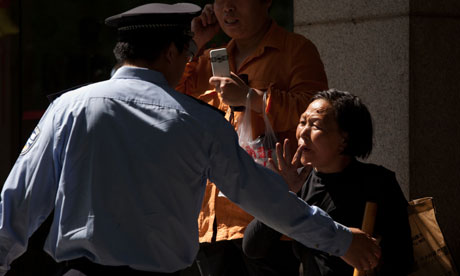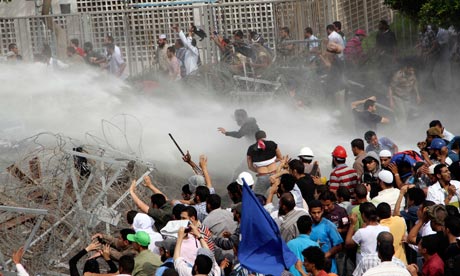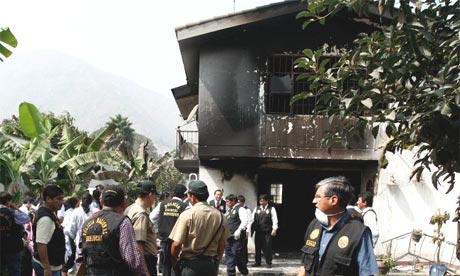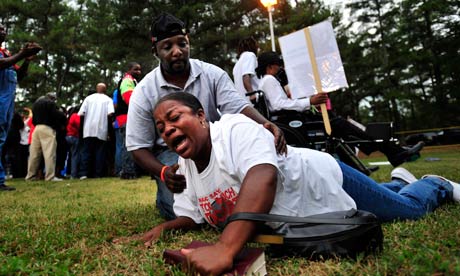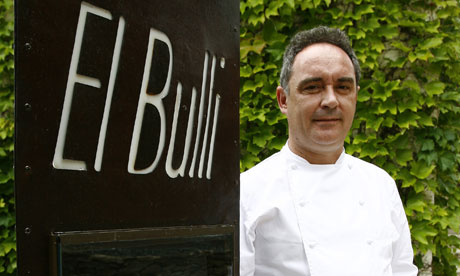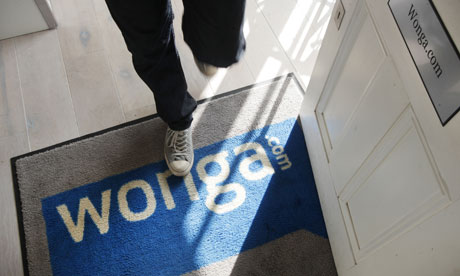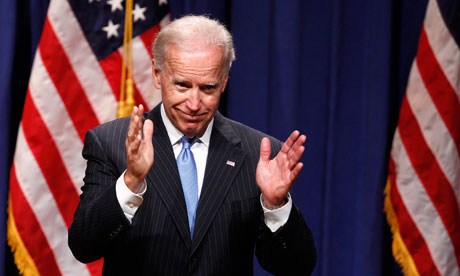"If we needed to hang someone tomorrow," Martin Martinez,
Trinidad and Tobago's commissioner of prisons, says, grinning wolfishly, "we would grease up the gallows and buy some new rope." Death by hanging is the penalty for anyone convicted of murder in Trinidad and Tobago, although no one has been executed here since 1999.
From his air-conditioned office, minutes from the cemetery in the capital, Port of Spain, Martinez reels off the four witnesses needed: a doctor, a priest, a court official and himself, the prisons commissioner. "It is traumatising to take a man's life," he explains. "It's an emotional issue, as there is such a high murder rate here. The death penalty sends a message, but it may or may not solve the problem."
Prime minister Kamla Persad-Bissessar, backed by former Fifa vice-president
Jack Warner, who is now her minister for works and transport, is campaigning for enforcement of the death penalty to fight the "the tsunami of crime" that has hit Trinidad and Tobago. In
Jamaica, which has one of the
world's highest murder rates, there is also a growing clamour for the rope to be used.
The debate is close to boiling point in the English-speaking Caribbean, partly because it plays on one of the few remaining links to Britain colonialism. The fate of those on death row is currently decided more than 4,000 miles away, in Westminster, at the
judicial committee of the privy council (JCPC). "We talk about independence, meaning a flag and an anthem," Martinez says, "but we need to sever the umbilical cord with the mother country."
The JCPC remains the highest court of appeal for 27 countries, including former Caribbean colonies, and the persuasiveness of a British campaign to abolish
capital punishment – argued through successive cases – has prevented many islands from carrying out punishments that remain on their statute books.
The London-based
Death Penalty Project (DPP) provides free representation to those facing the death penalty in countries that still use the JCPC as their final appeal court. The judgments made there are influencing the capital punishment debate around the world: increasingly Commonwealth countries accept that executing someone who has been on death row for five or more years constitutes cruel and inhuman treatment.
This follows the landmark Jamaican case of
Pratt and Morgan, in which the judges ruled that the death sentences of two convicted murderers who had spent 14 years on death row should be commuted to life imprisonment. The case is viewed around the Caribbean as the main barrier to implementing the death penalty – by the time that most appeals have been exhausted, the five-year limit has run out.
Keir Starmer, the UK's director of public prosecutions, who used to appear on behalf of condemned prisoners, has described the project as the "most successful litigation organisation in the world".
In March, two British QCs were arguing these points before five British judges in an oak-panelled room within the new UK supreme court building in Westminster. It could have been a day like any other in the British legal system, except for the large Trinidad and Tobago flag in the corner.
The judges were hearing the case of
Marcus Jason Daniel, one of 33 people on death row in Trinidad. Daniel has been convicted of murder and sentenced to hang. The DPP organised psychologists to assess Daniel's mental health and argued that he should have been able to use the defence of diminished responsibility at trial. The JCPC will assess whether Daniel's conviction was safe, and if his death sentence should be sent back to Trinidad's appeal court for review.
Listening to well-spoken barristers reading witness statements littered with colloquialisms and expletives is often surreal but this had an extra edge. Julian Knowles QC referred to "liming", Trinidadian slang for partying. Another exchange had Lord Clarke interjecting: "Smoking 'blacks' is drugs, is it?", to which the counsel Peter Knox QC replied helpfully: "Yes, my lord. A cigarette mixed with cocaine and marijuana."
Privy council judges emphasise their role is to apply the law of the country in question. They deny their stance is explicitly anti-death penalty. However, Lord Dyson, one of the judges hearing Daniel's case, told the Guardian last year that hearing death penalty appeals made him feel "extremely uncomfortable". He acknowledged the role the court has played in preventing executions: "I'm not aware of any case in recent years in which the death penalty sentence has been upheld."
Rajendra Krishna is personally grateful for the intervention of British judges. He spent seven years on death row in Trinidad, having been convicted of murder during a botched burglary in his early 20s. He is wary of the press, as any local media attention could affect his chances of finding work. However, he is happy to speak to British journalists, explaining that he owes his freedom to English people.
"We [the inmates] always had faith in the privy council because the justice in Trinidad and Tobago is very poor," he says. "I have no confidence in no Caribbean court. I believe in the privy council. I would rather the British judges make the decisions." Krishna eventually spent 27 years in prison until the privy council granted his immediate release last year. "No one deserves to hang. Everybody deserves a second chance in life. [Among] the people on death row … not everybody is innocent." But those who are not guilty and can't afford representation, he adds, also "end up in there".
While the privy council has saved lives, the idea of British judges having the final say over former colonial subjects in 2012 – the 50th anniversary of both Jamaican and Trinidadian independence – may seem anachronistic. As Justice Adrian Saunders, a judge at the
Caribbean Court of Justice (CCJ), puts it: "Are you independent if your final court of appeal is situated in the former colonial power?"
The CCJ was set up as an alternative to the privy council to serve as the final appeal court for the region. Until now, it has failed to attract widespread support. The court currently only hears appeals from Barbados, Belize and Guyana – even though it is situated in Trinidad. This is about to change. Last month, the Trinidadian prime minister
pledged to stop sending criminal appeals to the privy council. This follows a
promise from Jamaica's new prime minister, Portia Simpson Miller, in January, to end "judicial surveillance from London", sign up to the CCJ and drop the Queen as head of state.
While many have welcomed the news as an overdue step towards full independence, there are worries that leaving the privy council removes the barrier to hangings. Judges at the CCJ deny they preside over a "hanging court". They point to a death penalty appeal heard in 2006, where the sentence was commuted. The judgment allowed the CCJ to set out its philosophy on capital punishment. Justice Wit, another CCJ judge, said it showed the court was not "insulated". He continued: "Creating a Caribbean jurisprudence; that means a jurisprudence more connected to our kind of problems and our culture but that does not mean we are going to work in a vacuum. I would even say that at some points, the judgment was more progressive than I've seen from the privy council."
The CCJ has been hailed as a
model for selection of judges among international courts. The court's impressive e-filing and video-conferencing system allows it to hear cases from around the region. The court can also travel to hear cases, which makes it more accessible than the JCPC, where parties must either pay for travel to London, accommodation and visa costs, or hire British lawyers. Saunders argues: "Access to the privy council is so restricted that almost all of the cases heard are those by or against the state, by or against big corporations, by or against wealthy individuals or pro bono death penalty cases. So the average man and woman has never had the opportunity to appeal right up to the privy council."
It's a persuasive argument for the CCJ, so why has there been a reluctance to sign up? Trinidad and Tobago's attorney general, Anand Ramlogan, told the Guardian in March that the priority is "the fight against crime" while signing up to the CCJ is a decision that "must be decided by the people and not the politicians", implying a time-consuming referendum. But the move to stop sending criminal cases to the privy council, while retaining its jurisdiction in civil appeals, could be read as a canny political move to show the population that the government is doing something about the mounting murder rate – 124 so far this year.
A
recent survey by the DPP showed that 91% of Trinidad and Tobago's population support capital punishment. Ramlogan says his role means he is "duty bound – regardless of personal views – to facilitate and advance its implementation". Contrast that to his message in the local press in 2010: "Rest assured the death penalty is coming … if you do the crime you will not just do the time, but we will pop your neck."
Douglas Mendes, a Trinidadian human rights lawyer, is used to death-penalty politicking. "When people are complaining about crime, the first thing that somebody says is 'let's hang somebody' and they distract the population into a debate about hanging." He notes that capital punishment will always garner popular support (recent surveys in the UK have often shown large numbers in favour of bringing back executions). "Every country where it has been abolished, it's because someone took a leadership decision."
Even without abolition, the privy council's jurisprudence is increasingly being adopted on other continents. Kenya, Malawi and Uganda have taken almost 5,000 people off death row as a consequence of a ruling that mandatory death sentences for all murders are unconstitutional.
One irony of the campaign is that having once exported capital punishment to its dominions around the world and hardwired it into their constitutions, the UK is now leading the fight to abolish the gallows. "There's no death penalty in Latin America. It was abolished in Brazil in 1950s," observes Saul Lehrfreund, the DPP's director. "It's a British colonial legacy. About 60 countries retain the death penalty; a significant proportion are former British possessions. We are trying to get abolition on to the Commonwealth agenda; 19 member states are abolitionist."
Opposing the death penalty is now official government policy. The foreign secretary, William Hague,
called for abolition when he addressed the Commonwealth People's Forum in Australia last year. The UK has supported a series of UN resolutions supporting a moratorium on the death penalty. Asked in the Lords what representations Britain makes to the United States (where there are 4,000 people on death row), Foreign Office minister Lord Howell described it as "one of our priority countries". The project's work and some of its training programmes have been partially funded by the Foreign Office.
One of the most prominent defenders of capital punishment is Singapore, which left the JCPC in 1994; it has ignored subsequent legal developments. Yong Vui Kong, a 23-year-old Malaysian, is due to die because the state imposes a mandatory death sentence for drug trafficking; he was carrying 47g of heroin. His lawyers, who have been supported by the DPP, have made a clemency application to the president.
The greatest challenge for abolitionists is China where, some estimate, around 4,000 executions are carried out each year. The numbers have been reducing and last year the National People's Congress cut the number of capital offences from 67 to 54. The
case of Wu Ying, a 31-year-old multi-millionaire and the sixth richest woman in China, has stirred up public debate about capital punishment. She was condemned to death for "illegal fundraising" but in an unusual act of public clemency the death penalty was rejected in her case.
The Death Penalty Project is hoping to expand its work in China. "Abolition is the long-term goal," says co-director Parvais Jabbar. The project has held workshops in Beijing and Guangzhou for judges who have the discretion to impose the death sentence. "When we started we were quite a long way apart, but by the end of the exercise we were getting closer together."
So will they be greasing up the gallows in Trinidad? Abolitionists should not assume the CCJ will bow to demands for more executions. The privy council may be loosening its global reach, but its philosophy will live on.
Een Nuraeni, daughter of Ruyati who was beheaded in Saudi Arabia, cries during a protest outside the Saudi Arabian embassy in Jakarta, Indonesia, in June 2011. Photograph: Mast Irham/EPA
Global trends in capital punishment
Although the global trend is towards abolition of the death penalty, progress is unlikely to be smooth. Belarus, the last country in Europe to execute criminals, shot two young men – Dmitry Konovalov and Vladislav Kovalev – convicted of carrying out a 2011 Metro bombing in Minsk.
Iraq, which has reinstated capital punishment, has put more than 60 people to death since November; on one day alone, 19 January 2012, 34 prisoners were killed. According to Amnesty International, there were at least 360 judicial killings in Iran in 2011 (up from 252 in 2010) and at least 82 in Saudi Arabia (up from 27 the previous year).
Almost 150 countries have now either abolished the death penalty in law or in practice, or introduced a moratorium. In the US, there were 43 executions but support appears to be ebbing.
More than 500,000 people in California have backed an abolition proposal ensuring it will be on November's ballot paper. Connecticut became the 17th state to abolish capital punishment in April.
Amnesty International's secretary general Salil Shetty says: "Even among the small group of countries that executed in 2011, we can see gradual progress. These are small steps but such incremental measures have been shown ultimately to lead to the end of the death penalty." Owen Bowcott


